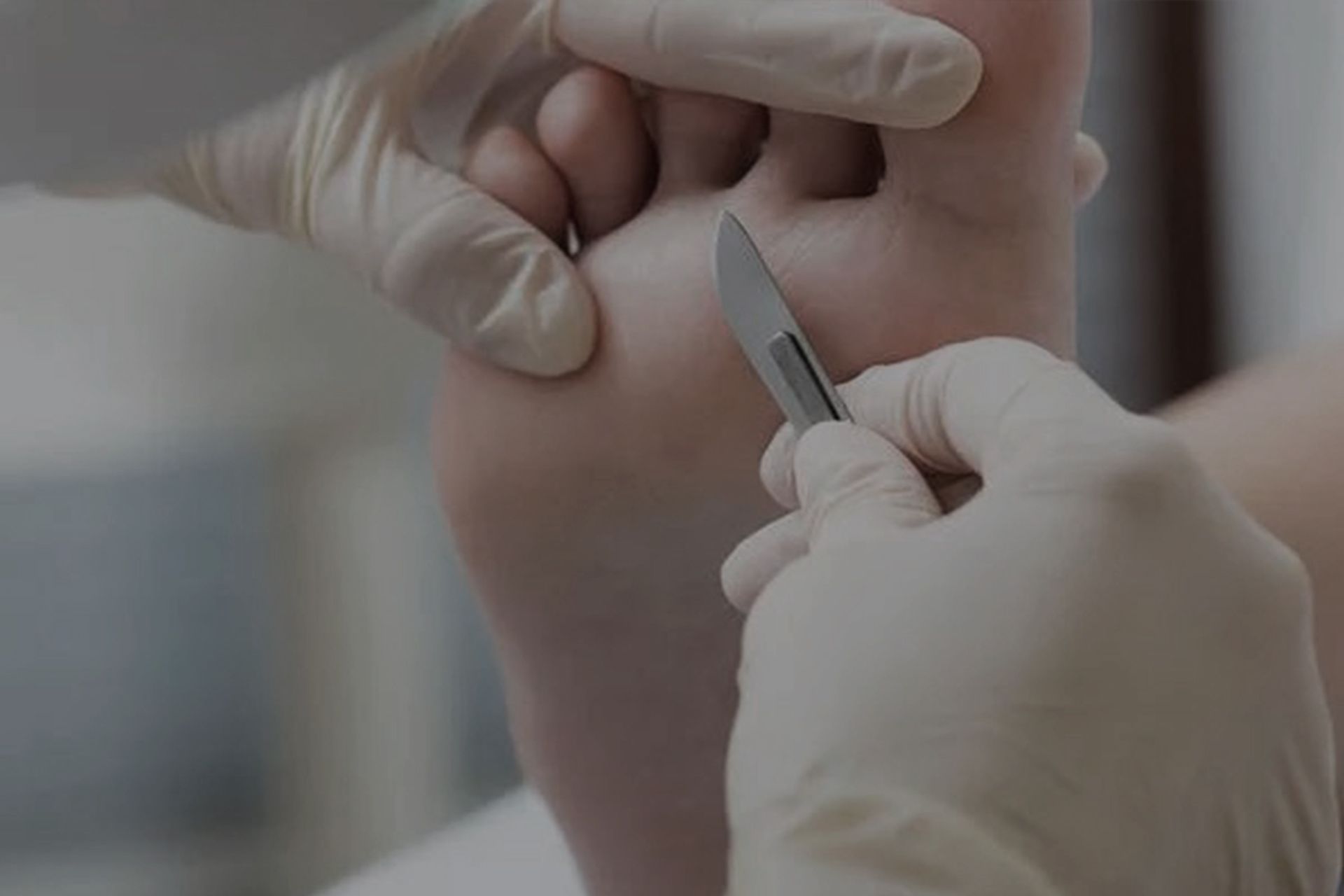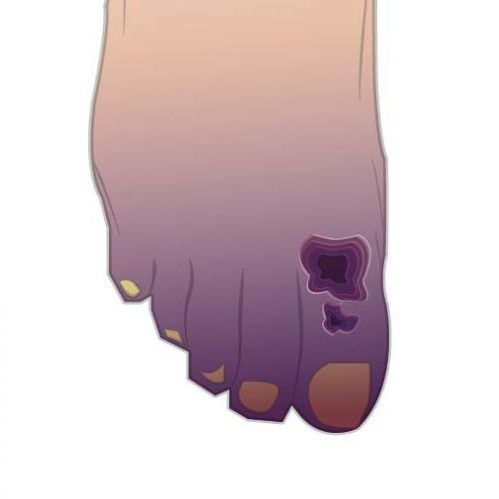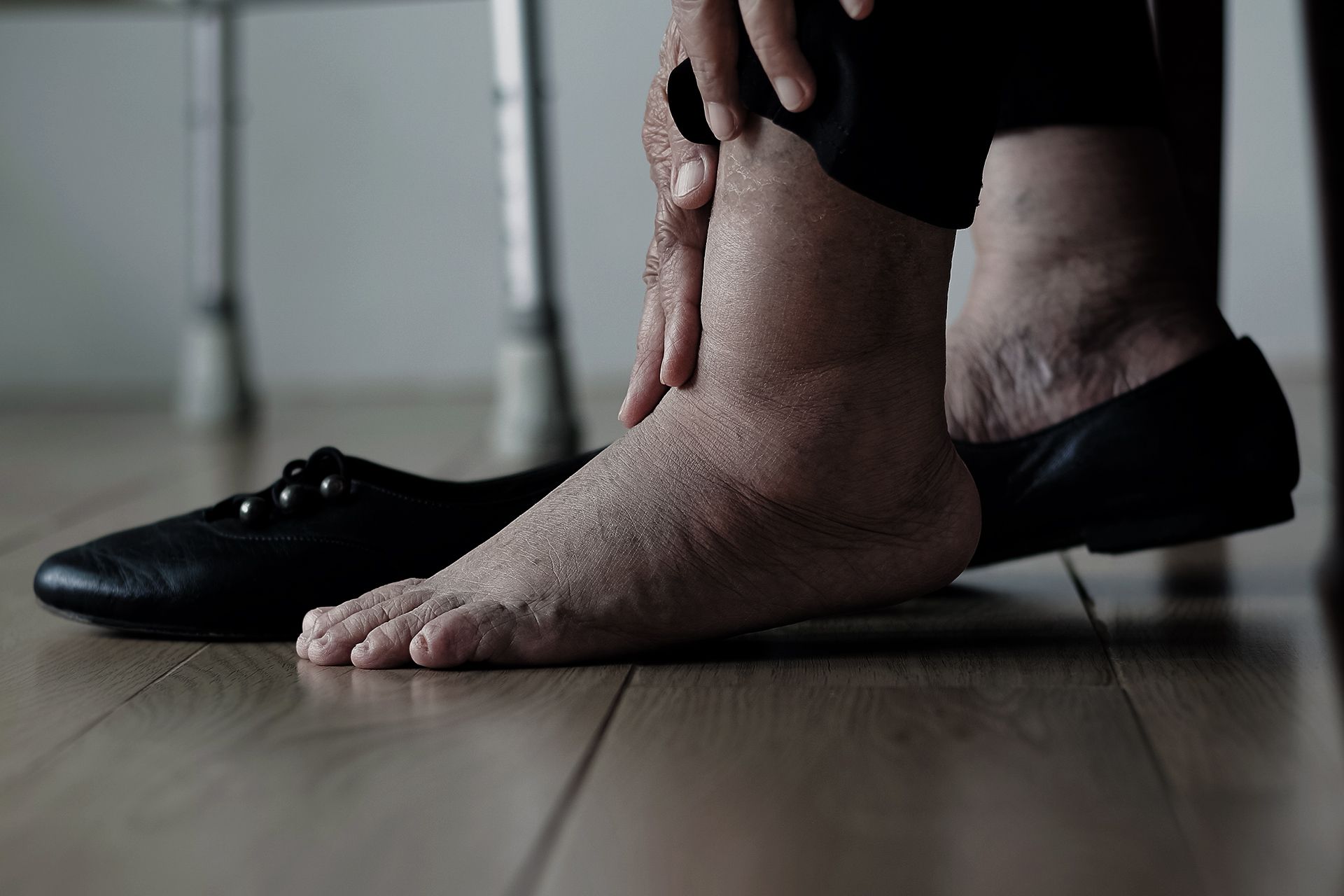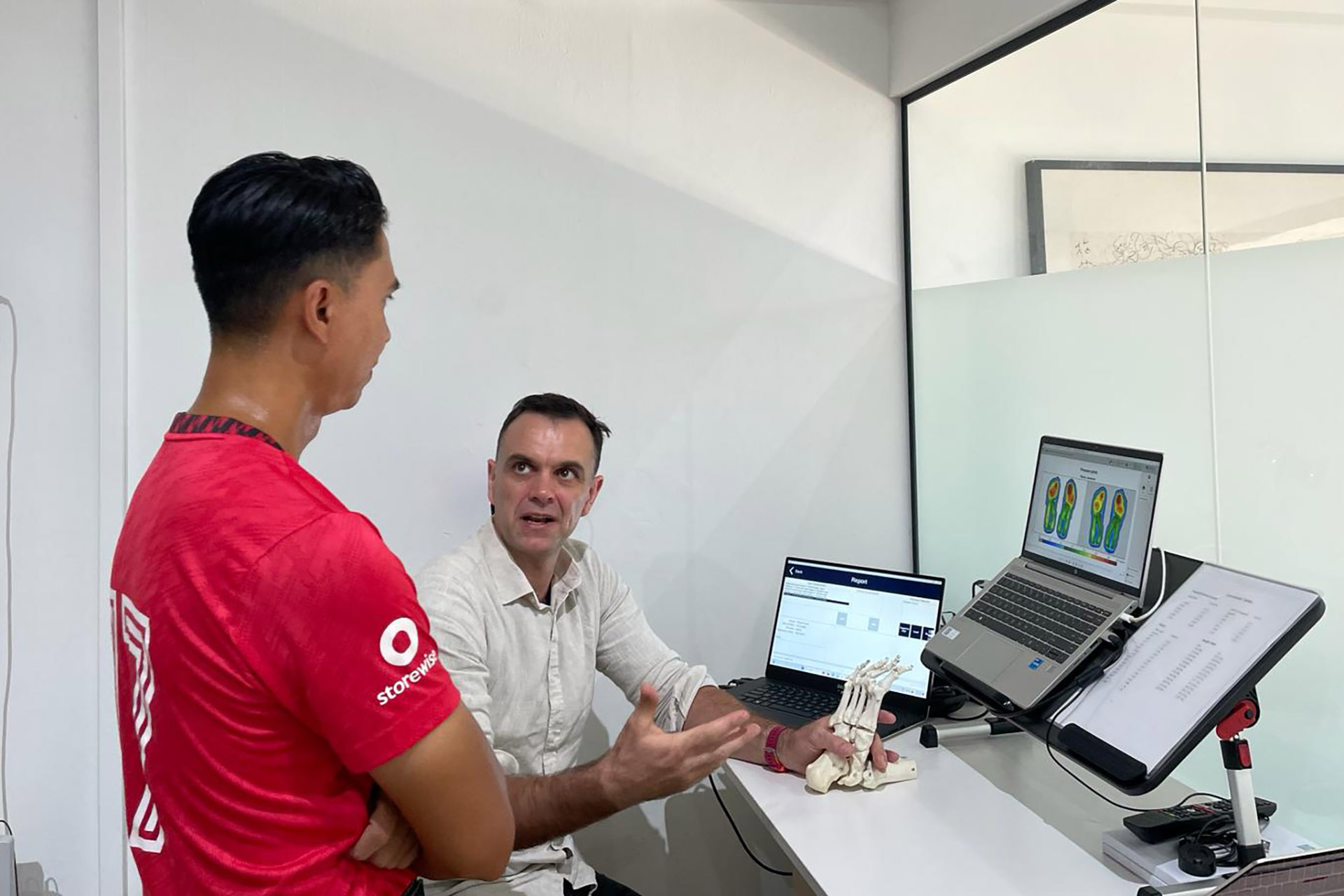Why Is Foot Care Important for People with Diabetes?
Diabetes can affect many areas of your body, including your feet. People with diabetes can experience diminished sensations in their feet. Diabetes can also reduce the blood circulation to your feet and cause a loss of feeling known as neuropathy.
Improper foot care that goes undetected may lead to serious problems. Did you know that if you have diabetes, you are 15 times more likely to have a limb amputated due to gangrene?
Even without foot pain, people with diabetes should inspect their feet daily for any blisters, cuts, bruises, or other problems. Insulin-dependent patients might also notice increased dryness on the skin of their feet or darkened skin due to poor circulation or nerve damage. The patient should consult a diabetic foot care podiatrist if they find any of these symptoms which could indicate potential infection.
Diabetic Neuropathy
Diabetes can do damage to the nerves, starting with the most distal nerves in the foot. It is related to the nerves being damaged by high blood sugar levels and poor diabetic control. If you suffer from diabetic neuropathy in the feet, it is called peripheral neuropathy. In rare cases, it can affect the hands or arms.
The main symptoms of diabetic peripheral neuropathy include the following:
- Numbness of the feet which can be a permanent problem
- Tingling of the feet, starting with the toes
- Burning of the fee, usually worse in the night time
- Pain in the foot that doesn’t go away with rest
In fact, if you have early symptoms and want to resolve them, you need to get your blood sugar levels in the best of control. There are medications a podiatrist can give to resolve some of the symptoms of diabetic neuropathy.
Blood Sugar Levels and Nerve Damage In Feet
High blood sugar levels are an inevitable consequence of diabetes. The body either produces too little insulin to regulate the amount of glucose that causes Type 1 Diabetes or has become unaffected by it causing Type 2.
High blood sugar levels are linked to a range of ailments, including reduced blood flow and nerve damage. When your nerves are damaged, they lose the ability to transmit necessary information properly with the muscles in your feet. The regular movement pattern of the muscles is disrupted, and they become maladjusted. This may lead to conditions such as hammertoes and difficulty in walking.
Charcot foot can also occur in diabetics. As a result of the condition, patients can’t feel symptoms in their feet and ankles because of significant nerve damage. Their feet are so weak that the bones fracture and foot and ankle joints may dislocate. Due to the lack of feeling in your foot or ankles, you may not even realize that there’s an issue. This is why it is important to see a podiatrist for your diabetic foot care so that they can diagnose and treat the problem before it becomes a serious irreversible condition.
The risk of foot complications can be greatly reduced by management of blood sugar levels. See your doctor if you feel that you need further assistance with blood sugar management.
Services and The Management of the Condition
Diabetic Foot Care Advice

Common Foot Problems Can Have Serious Complications
Your feet can quickly succumb to poor circulation if your blood flow or sensation is hampered. If you lose feeling in your feet, you will be less sensitive to the discomfort and agony caused by minor foot problems and injuries. It may take longer for you to realize that you have a blister, callus, or cut on your foot, for example. As a result of this, a common problem can turn into a major issue, such as when an ulcer forms on your foot.
Bacteria can very easily enter your body when your feet are injured, causing an infection. Symptoms of an infection include pus, redness, swelling and discomfort. Blood sugar levels that are too high make infected regions worse, while insufficient circulation prolongs the healing process.
Foot problems caused by diabetes are the leading cause of lower-limb amputations. Gangrene may develop in severe situations, necessitating toe or foot amputation. However, most diabetics’ limb amputations can be avoided with appropriate foot care and treatment with podiatrist diabetic foot care.
Proper Foot Care Is Extremely Important
Diabetics need to take special care of their feet in order to prevent complications of the diabetic foot. It is essential to take care of your feet and seek professional help swiftly if you notice any problems. By inspecting your feet daily, you can look for any signs of injury, infection or changes in shape.

Here’s a checklist of ways you can care for your feet:
- Keep your feet clean and free from infection. You need to wash your feet every day with mild soap and water. Get between the toes and pat the feet dry afterwards. Rubbing the feet dry can irritate the skin.
- Check your feet every day. Use a mirror if you have to to locate hard-to-reach places on the foot. Look between the toes to see if any sores have developed.
- Make sure the feet are kept smooth and soft. This means using some kind of lotion or cream on your feet after washing them.
- Keep blood flow as normal as possible to your feet. This means not crossing your legs and not wearing socks that bind or cut into the skin.
- Wear shoes that fit well and don’t squeeze or rub. Ill-fitting shoes can cause corns and calluses, diabetic foot ulcers and ingrown toenails.
- Cut or file your toenails regularly. If you can’t reach your toenails to properly trim them, have a podiatrist trim the nails for you.
- Keep down corns and calluses. Have corns or hard skin treated by a podiatrist.
- Wear socks and shoes all the time. This protects your feet from getting cut on anything. Avoid walking barefoot, especially in the garden or on the beach to reduce the risk of cuts or bites that may become infected.
- Treat ulcers immediately, within 24 hours, especially if there is redness or swelling around the area, or in an area where you have previously been warned to seek immediate attention.
- Seek treatment from your podiatrist if foot blisters or injuries do not heal quickly.
- At a minimum, schedule a visit six-monthly with your podiatrist.
With most conditions, it is better to work towards prevention rather than rehabilitation. This is especially the case with podiatry for people with diabetes.
Diabetes Foot Care Advice and Treatment
Diabetes is a complex disease that can have serious health consequences, including problems with the feet. At The Foot Practice, our team of specialists offers comprehensive diabetic foot assessments to help you maintain your health and keep your feet in good condition. Whether you’re experiencing problems with your feet or want to proactively prevent any issues from developing, our assessments can help. We’ll examine every aspect of your feet and provide tailored advice on how to best care for them.
At The Foot Practice, our team provides treatments for people with diabetes and foot care, including:
- Diabetic Foot Screening Test for signs of loss of feeling in your feet, sufficient supply of blood to your feet, and a full assessment of the current condition of your feet and check for risks of infection.
- Personalised Treatment Plan After our podiatrist identifies your health-related risks, a tailored prevention plan to reduce the risk of complications, based on your life and lifestyle.
- Orthotic Therapy Diabetes can lead to complex and serious health conditions including diabetic ulcers as a result of calluses, imbalanced walking gait. and foot deformities. Our Total Contact Diabetic Orthotics works to improve the foot’s function to improve abnormal or high-pressure areas.
Our podiatrists are experienced and thorough and will examine every aspect of your foot health to provide you with the best possible treatment. They will perform a thorough neurological, vascular and skin check to assess your sensitivity, blood pressure, physical appearance of your foot and other aspects of foot health.
The Foot Practice has top-of-the-line equipment and clean, hygienic surroundings. If you want to make sure that your diabetes doesn’t affect your feet, call us today.
With most conditions, prevention is better than rehabilitation, especially for people with diabetes. Find out more about The Foot Practice’s Diabetic Foot Screening services for people living with diabetes. Or book an appointment today by calling us at +65 6282 7400; email, hello@thefootpractice.com.







